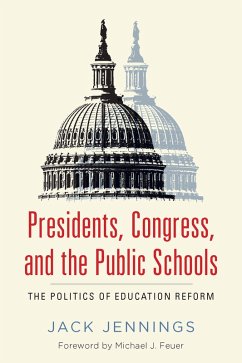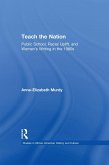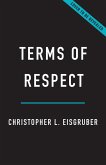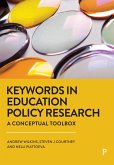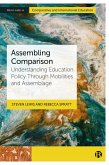In Presidents, Congress, and the Public Schools, longtime policy analyst Jack Jennings examines the evolution of federal education policy and outlines a bold and controversial vision for its future. He assesses the impacts of Title I and NCLB, and explores the variety of ways that the federal government has intervened in education. He concludes by setting forth an ambitious national agenda to ensure that every child has the opportunity to learn. "No one knows more about ESEA and especially Title I than Jack Jennings. Here he tells a remarkably unbiased, informed, and crisp story about the politics, battles, and decisions made by Congress over the past fifty years. As Jennings makes clear, the story is not over. His conclusions propose a new and important course for Congress." - Marshall (Mike) Smith, former under secretary, U.S. Department of Education "Jennings has written an admirably bold proposal for overhauling the federal role in K-12 education, with an eye to both student learning and equity. Arguing that NCLB has not lived up to its promise, he presents a blueprint for an improved balance in the federal-state relationship, one providing flexibility and accountability. His ideas merit serious attention and debate." - Elizabeth DeBray, professor of educational administration and policy, University of Georgia "If you agree with everything in this book you probably didn't read it closely. But if you don't read it you're missing a unique account of federal education policy from someone who was in the middle of it for decades. Jennings offers a concise history and some ideas about new directions that show what federal education policy has accomplished and how much work remains." - Andrew J. Rotherham, cofounder and partner, Bellwether Education "Only Jack Jennings could have written this unique and important account of federal involvement in education. Presidents, Congress, and the Public Schools is a must-read contribution to American education policy that will stimulate important conversations about our future." - Gene Wilhoit, founder and executive director, Center for Innovation in Education, and partner, Student Achievement Partners Jack Jennings is the founder and former CEO of the Center on Education Policy. He served for twenty-seven years as a subcommittee staff director and then as general counsel for the U.S. House of Representatives Committee on Education and Labor. Michael J. Feuer is the dean and professor of education at The George Washington University, and president of the National Academy of Education.
Dieser Download kann aus rechtlichen Gründen nur mit Rechnungsadresse in A, D ausgeliefert werden.
Es gelten unsere Allgemeinen Geschäftsbedingungen: www.buecher.de/agb
Impressum
www.buecher.de ist ein Internetauftritt der buecher.de internetstores GmbH
Geschäftsführung: Monica Sawhney | Roland Kölbl | Günter Hilger
Sitz der Gesellschaft: Batheyer Straße 115 - 117, 58099 Hagen
Postanschrift: Bürgermeister-Wegele-Str. 12, 86167 Augsburg
Amtsgericht Hagen HRB 13257
Steuernummer: 321/5800/1497
USt-IdNr: DE450055826
Bitte wählen Sie Ihr Anliegen aus.
Rechnungen
Retourenschein anfordern
Bestellstatus
Storno

